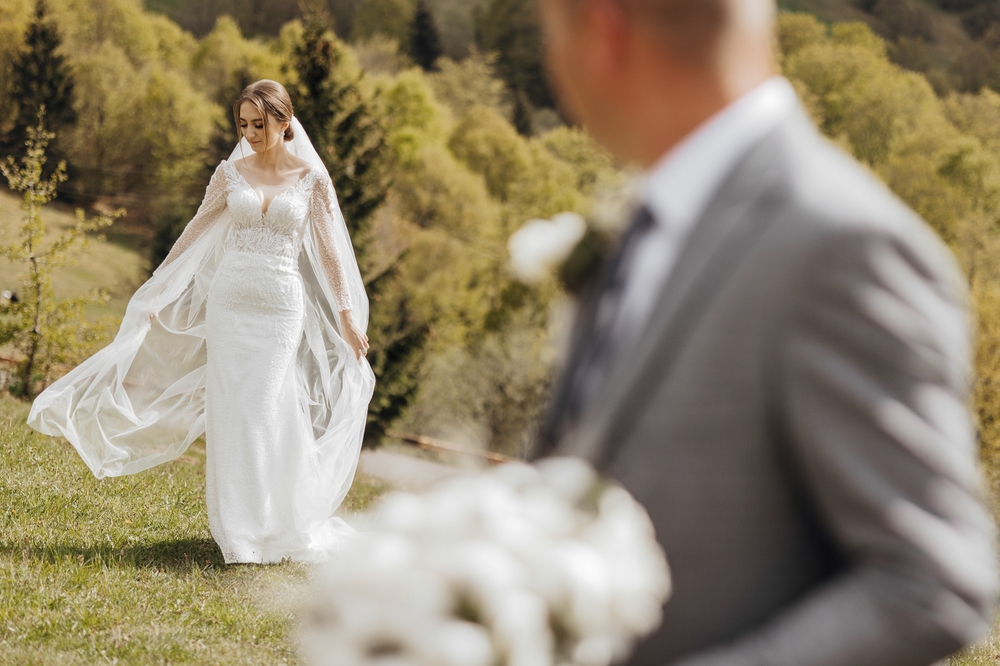Can You Wear White to a Wedding? Why Guests Should Avoid

Choosing a wedding outfit may seem straightforward, but without careful thought, you could unintentionally break one of the biggest etiquette rules—guests should not wear white. You want to look elegant, dress appropriately for the occasion, and maybe even catch some attention. However, white is not meant for you unless you are the bride.
With weddings becoming more diverse in style, many now question whether this rule is still necessary. Today, minimalist weddings, neutral dress codes, and even some weddings with an “All-White” theme have become more popular. Some guests wear patterned white dresses, white blazers, or sleek white jumpsuits without giving it much thought. But is this actually appropriate?
The answer remains no.
White as a Wedding Tradition
Before white wedding dresses became a global symbol, brides were not bound by any specific color rules. For centuries, they often wore vibrant gowns in shades of red, gold, or blue, symbolizing luck, happiness, and social status. In many Asian cultures, especially in China and India, red was considered the color of celebration, while white was traditionally associated with mourning and funerals.
Everything changed in 1840 when Queen Victoria of England chose to wear a white wedding gown for her marriage to Prince Albert. She did not select white for its symbolism of purity or innocence, but rather because it was the best way to highlight the fine lace detailing on her dress. However, the influence of the media transformed this choice into a fashion trend, and over time, white wedding dresses became the standard for brides in the Western world.

As white became exclusively associated with the bride, guests were expected to follow an unspoken rule of avoiding this color to ensure that the spotlight remained on the woman of the day.
Read more: Can You Wear Black to a Wedding? 8 Things to Know
Should This Rule Be Broken in Modern Weddings?
You might think that society has evolved, and fashion norms are no longer as rigid as they once were. So why should guests still avoid wearing white?
According to The Knot’s 2023 Wedding Trends Report, 40% of couples incorporated classic white into their wedding color palette, reaffirming its timeless appeal. This suggests that perceptions have shifted to some extent, but that does not mean the rule has disappeared entirely.
While specific statistics on brides’ discomfort with guests wearing white are not readily available, it is widely acknowledged in wedding etiquette that wearing white to a wedding is traditionally reserved for the bride. This practice helps ensure that the bride remains the focal point on her special day.
Wedding etiquette experts emphasize that while wearing white to a wedding isn’t longer considered outright disrespectful, it’s still important to ensure that it aligns with the dress code and the bride’s preferences. If you are unsure, it’s always best to avoid white.
Are there ever situations where a guest can wear white?
Rare Occasions When Guests Can Wear White
There are a few situations where wearing white is not considered inappropriate. If the wedding dress code explicitly calls for white, you can confidently wear the color without concern. Some modern weddings with a minimalist aesthetic, beachside celebrations, or “All-White” themed events may even encourage guests to wear white for a cohesive look.
Additionally, if the bride personally tells you that she does not mind, you might consider wearing an outfit with white tones. However, keep in mind that just because the bride is comfortable with it does not mean everyone else will be. If there are any signs that it might be an issue, it is best to choose a different color to avoid potential discomfort.
Situations Where You Should Avoid Wearing White
If the dress code does not specifically call for white, it is best to steer clear of this color. Even if you think your outfit is simple, many still consider white to be exclusively for the bride. You do not want to unintentionally become the center of attention just because you love this color.
For traditional weddings or those with conservative families, wearing white is even less appropriate. In some cultures, including Italy, Spain, and many Asian countries, white is not only reserved for the bride but is also associated with mourning and funerals. If you know the wedding has strong traditional elements, choosing another color is a way to show respect.
For example, influencer Kat Clark sparked controversy after wearing a floral dress with a white base to a wedding. Despite her intention to blend in, many criticized the choice, arguing that even a patterned white outfit could overshadow the bride. This incident proves that even if you don’t see it as an issue, others may have a different perspective.
What is the Best Choice?
If you want to look elegant while ensuring you do not break any unspoken rules, consider alternative colors such as nude, champagne, pastel, navy, or olive green. These shades allow you to look refined and stylish without causing any concerns.
Above all, a wedding is the bride’s moment to shine. You may adore the elegance of white, but with so many stylish alternatives, is it worth the risk? Wouldn’t it be better to choose a color that allows you to enjoy the event without drawing the wrong kind of attention?
Always remember that a great outfit is not just about style. It also reflects your respect for those around you. And when it comes to weddings, that is far more important than any fashion trend.




